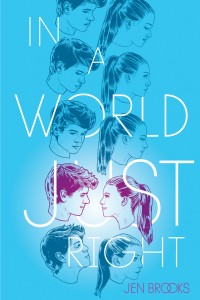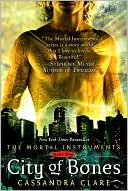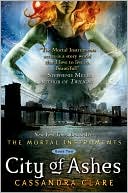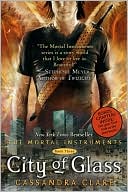Harry Potter
Great book endings
So I’m thinking about book endings. I mean, I’m thinking about what makes a book ending GREAT.
Because I’m taking a pause in my writing, I’ve been catching up on reading. (I don’t seem to be able to read and write prolifically at the same time.) I’ve been struck by how much, or how little, I love the endings of some of the novels I’m reading, and I can’t help but be insecure about the impact of the endings of the stories I’ve written.
I’ve been taught that the ending to a novel should deliver the inevitable in a way the reader does not expect. To do this, a story must be meticulously plotted with characters’ actions carefully bringing about the ending. Some novels I’ve read this year seem to be plotted correctly, to build sufficiently to the ending, yet somehow I don’t get the big bang out them that I crave. In truth, very rarely do I get a true feeling of completion, of catharsis, of fulfillment when I read a novel, and although I chalk that up to my impossibly high standards (after all, I do LIKE a lot of books, but here I’m talking about LOVING a book), I think I can pinpoint a couple of reasons I am disappointed by endings.
Ironically, my disappointment in an ending is proportional to my faith in an author’s skill. If I’m reading a book and find myself entranced by its language, its concept, its world-building; if I find myself excited about the thematic complexity; if I say to myself, Holy crap, this author knows what he/she is doing; then I ratchet up my expectations for a jaw-dropping ending. This is probably not fair since I tolerate much less in an ending when the beginning and middle don’t foster such high expectations in me. I can use the example here of TVs Lost and Battlestar Galactica. I adore both stories (own both on DVD), and I like both endings, but ultimately I don’t feel those endings exploited the full potential that was there throughout.
Another way an ending can disappoint me is if I feel essentially unchanged by what the author ultimately has to say. I want a book to have educated me or have made me think about something in a new way. Again, I can get excited during the beginning and middle of a book as I contemplate the premise or the message I think is coming, and when nothing of earth-shattering significance shows up in the conclusion . . . disappointment.
Mostly I am disappointed in an ending if I can sit there with the book closed and think about how I might have made the ending better.
I know I’ve loved the ending when I want to sit there and savor what happened, just the way it did.
It’s hard to talk about specific endings that I’ve loved because doing so obviously creates spoilers, but here I offer, by way of example, a brief list of books I’ve read that have wholly satisfied me with their endings. You’ll likely recognize all of them. The first thing I noticed upon reflection is that several are series, and I think this says something about what I need in complexity in order to feel I’ve had a satisfying pay-off.
The Hyperion Cantos by Dan Simmons
The Harry Potter series by J.K. Rowling
Ender’s Game by Orson Scott Card
The His Dark Materials trilogy by Philip Pullman
Thirteen Reasons Why by Jay Asher
The Time Traveler’s Wife by Audrey Niffenegger
The Book Thief by Markus Zusak
To the Lighthouse by Virginia Woolf (my favorite book ever)
What do you need in order to LOVE a book’s ending? What ultimately disappoints you about endings? What are some books that have had the greatest pay-off for you? (Be warned I will use your advice to revise my own stories’ endings!)
Speak up:
comment| TAGS:
Ender's Game, endings, Harry Potter, His Dark Materials, Hyperion, The Book Thief, The Time Traveler's Wife, Thirteen Reasons Why, To the LighthouseThe trilogy wait
A couple of weeks ago I finished reading Cassandra Clare’s first trilogy in The Mortal Instruments world: City of Bones, City of Ashes, City of Glass. This is a YA fantasy series I had heard good things about, and I wasnt disappointed.
The thing is there is a second trilogy taking up where the first left off. The first book of the new trilogy has already been released, the second will be out in May of next year, and the third presumably sometime after that. (Clare is also in the middle of a prequel trilogy.) I was pretty satisfied by the first trilogys ending, and I really am not a very patient person when it comes to story. If the sequel trilogy were out in its entirety now, I would read it, but since it isnt, I wont. I don t like being left hanging.
Of course this is no ones problem but my own. I understand the reasons why trilogies/series are not written to completion before being published in parts.
Still, the Mortal Instruments experience reminds me of reading Dan Simmonss Hyperion, which for some reason I didnt know had three more books before the conclusion. Luckily all four books had been published when I read the first one, so I bought the others and saw the story to its end without delay.
I discovered Philip Pullmans His Dark Materials trilogy during the release of the second book, The Subtle Knife. I had to waitimpatientlyto read The Amber Spyglass. It was a long, but totally worthwhile, wait.
And then there were the years where Battlestar Galactica (the new one) and Lost were on TV. I remember that period as being a pretty rich one in my life for consuming story.
Of course this Star Wars fan had a really hard time waiting for George Lucas to finish his saga.
Do I even have to mention Harry Potter?
My point is more than a confessed dislike of delayed endings. Besides just being driven mad by the wait, I come up with my own ideas and speculations about what should happen. The more time I wait, the more speculation. A writer who can produce something even better than I imagined is the writer whose story I recommend to everyone I know. In many ways, this puts a heavy burden on a writer to outsmart all those people who, like me, will love the world theyve been introduced to and love to speculate within it.
Ive been very pleased with some of the endings Ive waited for. Not pleased with others. And I cant help but wonder if my reaction would have been different, in either direction, had I been able to experience the whole story without waiting.
As a writer of YA fantasy and science fiction, I feel the pressure to trilogize/serialize. This scares me because I dont know that I can write a final chapter better than the composite masterpiece of all my waiting readers.



